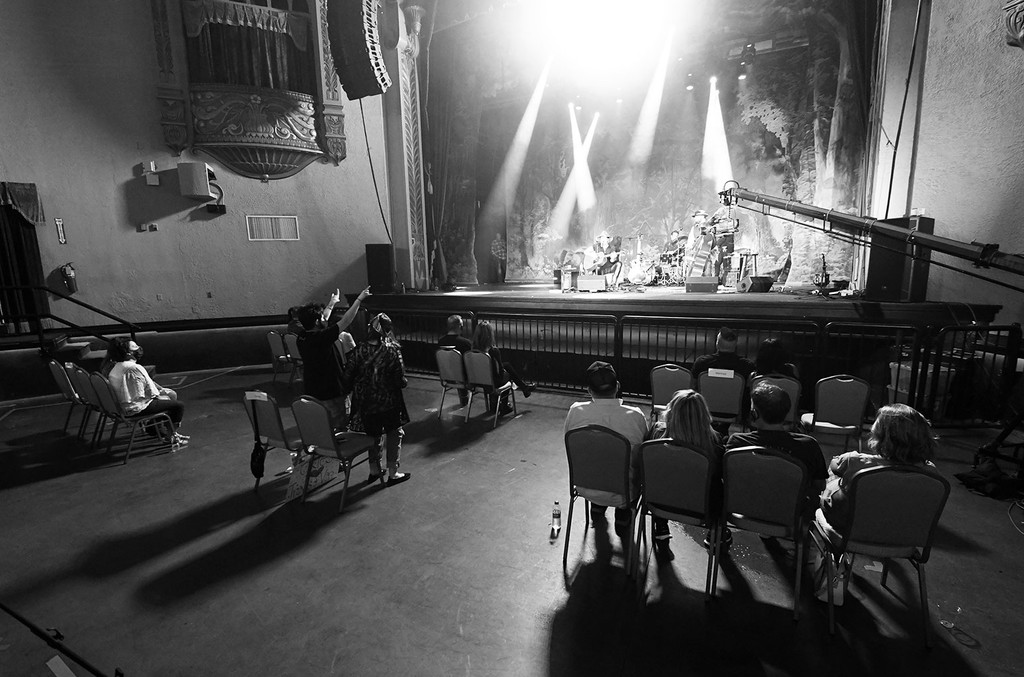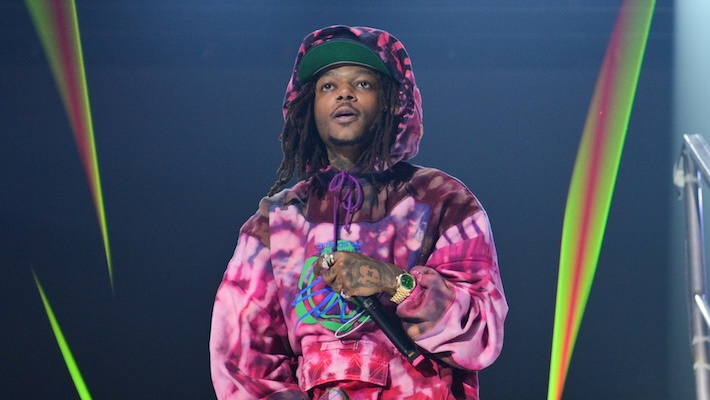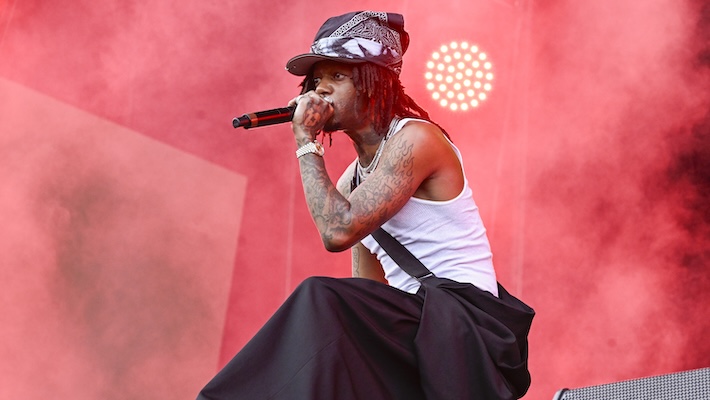As nightlife returns in some states, clubs and promoters should consider their liability in case of COVID-19 outbreaks.
As states lessen restrictions and move towards phased reopening of businesses, venues, nightclubs and concert promoters have been pressing their attorneys, business managers and insurance providers for solid advice regarding what protection they would be afforded should a COVID-19 infection or outbreak occur on their premises. What they are discovering is there are no definitive answers.
“Businesses don’t have a lot of clarity right now,” says Jonathan Steinsapir, a partner at Kinsella Weitzman Iser Kump & Aldisert, a Los Angeles-based business and entertainment litigation law firm. “There is still a lot of risk reopening. You can’t give clear answers because of just how devastating liability can be with punitive damages and all the things that can go wrong in a litigation.”
Attorneys like Steinsapir have been counseling their clients that while complying with state guidelines will demonstrate a business wasn’t negligent, it isn’t a blanket guarantee to avoid litigation. Compounding the uncertainty is the lack of comprehensive knowledge about the virus itself.
“I would have a very hard time telling my client that if you comply with what the government has said as to reopening, that you’re in the clear,” he says. “This is something that will be adjudicated with a lot of hindsight bias. It’s so difficult to predict what a court will say a year and a half from now. “
Scott Zolke, a partner at Loeb & Loeb who has been advising festivals, venues and live events, says liability “is just a Pandora’s box going forward.” Zolke says all of his clients have heeded his advice and pushed back opening at least until fall and some until next year.
“Everything is getting pushed — promoters and nightclubs that are traditionally risky are taking a more conservative approach,” Zolke says. “This is not the time to be the Wild Wild West. Everyone has really throttled back and is taking a wait-and-see approach.”
Los Angeles-based insurance attorney Sean Andrade of Andrade Gonzalez, like most other insurance experts, says he expects to see substantial litigation over COVID-19 outbreaks. He concludes that if a customer can demonstrate that the business was the proximate cause of their injury and they contracted coronavirus at the establishment, the business could be on the hook for significant damages. Yet, Andrade adds, businesses will have a shot at getting those claims covered as bodily injury under their Comprehensive General Liability policy, unless they have a virus exclusion.
“A lot of insurance companies will probably try and argue this isn’t covered in your policy,” Andrade says. “That’s usually the first response and nine times out of 10 people don’t pursue it further. But I think if you look at general liability policies, there should be ways to get coverage for businesses.”
Moving forward, Andrade expects insurance companies worried about liability will make clear distinctions regarding virus and pandemic coverage. In addition, he expects rates to increase “astronomically” as policies are renewed.
To protect themselves, Andrade recommends in the interim that businesses put in place a safety plan that incorporates mitigation recommendations from the CDC and local government. Those plans should have some system of shifting liability and risk to customers coming into their business. Implementing measures such as a screening mechanism to exclude individuals who are obviously sick, temperature checks for patrons and employees, disinfection protocols and social distancing will demonstrate an active commitment to reducing risk and injury.
States that have allowed concerts to resume such as Oklahoma, Missouri, Arkansas, Florida and Texas, have done so with safety guidelines handed down from government officials. Oklahoma and Missouri were the first states to allow live shows to resume and used Centers for Disease Control guidelines to help venues do so safely by recommending social distancing and enhanced safety protocols including sanitation of frequently-touched areas. Other states have implemented stricter rules such as occupancy limitations. Texas governor Greg Abbott gave the OK for concert venues to open their doors at 25% capacity on May 22 and, as of June 3, has since given owners the opportunity to operate at 50% occupancy.
Andrade says another option to consider would be asking customers to voluntarily agree to a waiver of rights or acceptance of responsibility when they enter an establishment. Andrade said the waiver would be akin to the assumption of risk individuals agree to when they attend activities that could be inherently dangerous such as the potential of getting hit with a foul ball at a baseball game. Others find hedging your business on coronavirus disclaimers or requiring employees and customers to sign waivers, a risky proposition.
This applies to employees too. Aaron Goldstein, a labor and employment partner at the international law firm Dorsey & Whitney says not only are waivers potentially unenforceable but they could also be a PR disaster.
“Waiver agreements are terrible PR for companies. Companies should be showing how they are keeping their workers safe, not how they are trying to avoid liability if their workers get sick,” Goldstein says.
Goldstein says that waiver agreements between employers and employees are only enforceable under very specific circumstances. By law, employees generally cannot waive workers compensation coverage or waive claims for intentional or fraudulent acts by their employers, Goldstein says.
“Some states, including California, have adopted a presumption that employees who catch COVID-19 caught it at work and are therefore covered by workers’ compensation. Employees also cannot waive their right to raise certain administrative charges, such as EEOC charges and OSHA complaints,” Goldstein adds.
For customers who voluntarily elect to attend a festival or enter a venue, Kent Schmidt, a litigation partner at Dorsey and Whitney, says those waivers will likely be enforceable. But, he adds, businesses still have the obligation to follow best practices and will be held liable for egregious conduct. Companies such as Disney World and the New York Stock Exchange have already instituted waiver requirements for entry stating that visitors understand that there is an “inherent risk of COVID-19 exists in any public place where people are present.” President Donald Trump is also requiring rally attendees in Tulsa to sign away their right to sue if they contract the coronavirus.
Sensing this business trepidation, other business owners are pinning their hopes on corporate immunity federal legislation. Senate Majority Leader Mitch McConnell and other Republicans have been outspoken saying that they would not approve a fourth stimulus package unless it contained a provision for corporate immunity. Last month, Ohio Congressman Mike Turner introduced the Employer and Employee COVID Protection Act that would specifically give “all complying business with immunity from civil lawsuits if one of their employees contracts coronavirus after states permit business to reopen.” In the interim, without the legislation in place, the fear of the unknown has many music live events and venues reopening plans in limbo.
The National Independent Venue Association (NIVA) has also been pushing for safe workplace incentives legislation such as the Clean Start Act (H.R. 7079), led by Reps. Darin LaHood (R-IL) and Stephanie Murphy (D-FL), which provides a tax credit to businesses for added costs related to cleaning and disinfecting products, personal protective equipment and other tools needed to ensure both workers and customers remain safe. “Liability protection would be hugely helpful to the industry when we’re permitted to reopen,” says NIVA spokesperson Audrey Schaefer, “but at the moment we’re focused on assistance programs and tax relief that will help us to survive to reach the point of reopening.”
“But let’s be clear, the ‘industry’ is not reopening in a meaningful way for the foreseeable future, and won’t be functioning until it’s a national reopening with full capacity,” Schaefer continues. “Reopening a venue here or there at partial capacity is not the beginning of the industry comeback; we are all still in peril. “
For those who do take a gamble on opening, with so much still unknown, Zolke says everyone should follow practices designed to reduce risks.
“Let’s be deliberate and let’s be thoughtful in how we roll out,” he says. “ So, yeah, that means pushing dates later and later. It’s the safest thing because we’ll have more information and then we’ll be able to make better decisions.”




